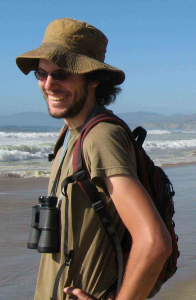 Postdoctoral fellow (NSERC-funded)
Postdoctoral fellow (NSERC-funded)
Education
- Ph.D. in Biology – Stanford, 2015
- M.Sc. in Biology – Université de Montréal, 2008
- B.Sc. in Biology – Université de Montréal, 2005
Research Interests
- Biogeochemistry
- Nutrient cycling
- Agroecology
- Soil Science
- Ecosystem Ecology
I am a biogeochemist who integrates soil science, ecosystem ecology and plant biology to study nutrient cycling and quantify fluxes of carbon (C), nitrogen (N) and phosphorus (P) in agricultural and natural (e.g., wetlands) ecosystems. I use agroecosystems as model systems to better understand how changes in the stoichiometry and speciation of nutrient inputs affect biogeochemical cycles and agricultural sustainability. My work combines mechanistic studies, including large-scale field and greenhouse experiments, with tools to upscale these results (e.g., nutrient budgets, crop models).
Research projects
Broadly speaking, my postdoctoral work focuses on how the variable C:N:P stoichiometry of organic amendments (composts and manures) affects plants, nutrient cycling, and greenhouse gas (GHG) fluxes. I am working on three specific projects taking place at the UBC farm.
My main project compares four treatments combining municipal compost, composted poultry manure and/or blood meal to evaluate trade-offs among plant productivity, soil fertility and GHG fluxes. We established: 1) a control treatment targeting crop P removal with municipal compost, 2) two treatments targeting crop N requirements with either municipal compost or composted poultry manure, and 3) a hybrid treatment targeting crop P removal with municipal compost and N requirements with blood meal. This project is planned for two growing seasons: a polyculture of Brassica (kale, cauliflower, cabbage, brokali) in the summer of 2015 and a squash monoculture in the summer of 2016 interspersed with a rye-clover cover-cropping phase. Within these different treatments, we are measuring crop yields and nutrient uptake/removal, soil N pools and processes (e.g., net mineralization), and GHG fluxes – carbon dioxide (CO2), nitrous oxide (N2O) and methane (CH4). More details can be found in the project page.
In addition to this main project, I am working on a manure decomposition experiment at the UBC farm, where three types of manures (chicken, turkey, horse) are being decomposed in piles that are protected or not from the rain (more details in the project project page). We are measuring changes in nutrient availability as well as GHG emissions from these piles that will be monitored from the fall of 2015 until the spring of 2016. This work will be coupled with a manure incubation study that will take place in the winter of 2016 with the same three types of manures.
Finally, I am also working on an experiment where chicken and horse manures were applied in the fall of 2015 to cover-cropped plots (rye-clover mix). We are measuring changes in soil N pools and processes and GHG fluxes in these plots, and we will quantify cover crop biomass and species composition in the spring of 2016. More details can be found in the project page.